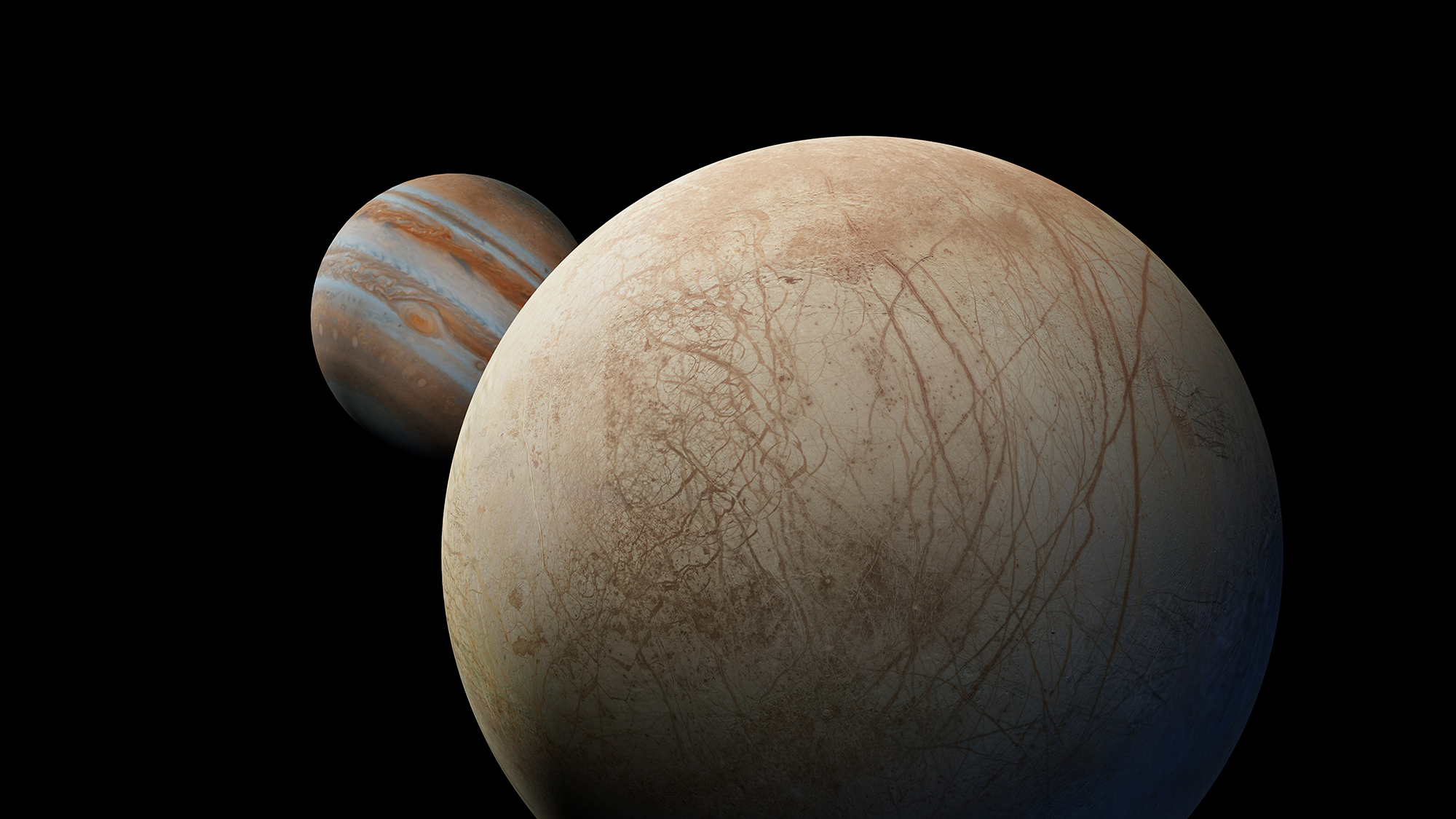Jupiter's Europa has less oxygen than hoped
Scientists say this makes it less likely that Jupiter's moon harbors life


A free daily email with the biggest news stories of the day – and the best features from TheWeek.com
You are now subscribed
Your newsletter sign-up was successful
What happened?
Jupiter's moon Europa, believed to have a salty ocean under its icy shell, has less oxygen on its surface than previously believed. This makes it less likely the planet harbors life, scientists said Monday in Nature Astronomy.
Who said what?
Europa's oxygen is "on the lower end of what we would expect," lead study author Jamey Szalay said to The New York Times. But "it's not totally prohibitive" for hosting life.
The commentary
One theory is Europa's oxygen — formed when particles from space split frozen water molecules on the icy crust into hydrogen and oxygen — sinks down into the subterranean ocean, mixing with volcanic material to create a "chemical soup that may end up making life," University of Colorado planetary scientist Fran Bagenal told the Times. "We don't really know how much oxygen you need to make life," she added. "So the fact that it's lower than some earlier, wishful-thinking estimates is not such a problem."
The Week
Escape your echo chamber. Get the facts behind the news, plus analysis from multiple perspectives.

Sign up for The Week's Free Newsletters
From our morning news briefing to a weekly Good News Newsletter, get the best of The Week delivered directly to your inbox.
From our morning news briefing to a weekly Good News Newsletter, get the best of The Week delivered directly to your inbox.
What next?
NASA is scheduled to launch its Europa Clipper orbiter in October to gather more data from Jupiter's moon, and the European Space Agency's Jupiter Icy Moons Explorer is expected to arrive in Europa's neighborhood in 2031.
A free daily email with the biggest news stories of the day – and the best features from TheWeek.com
Peter has worked as a news and culture writer and editor at The Week since the site's launch in 2008. He covers politics, world affairs, religion and cultural currents. His journalism career began as a copy editor at a financial newswire and has included editorial positions at The New York Times Magazine, Facts on File, and Oregon State University.
